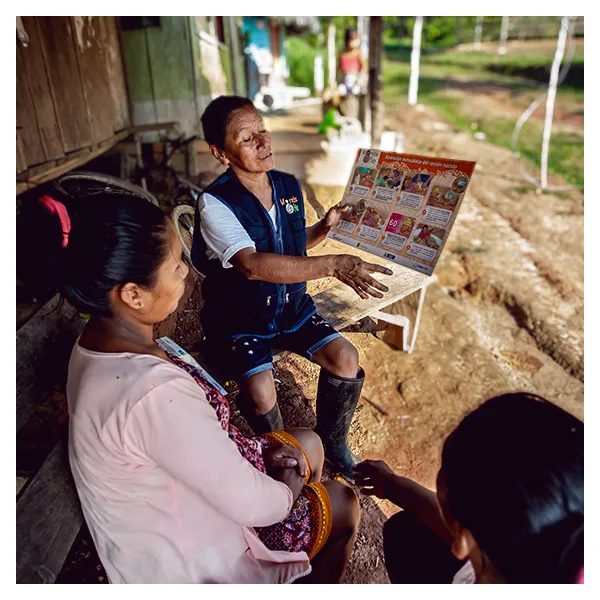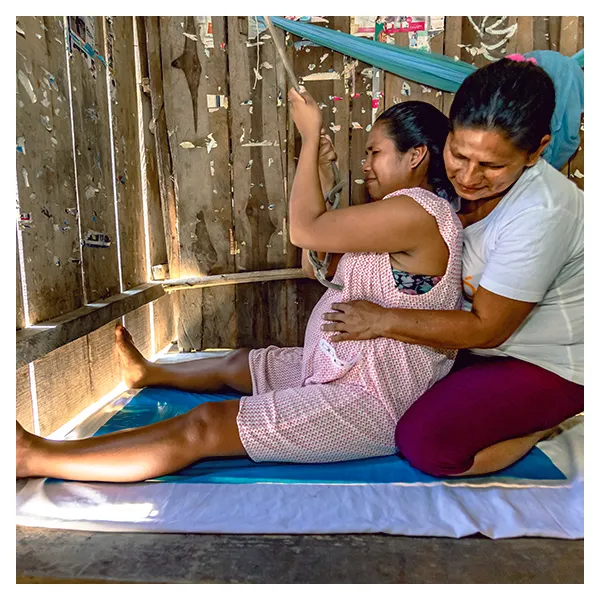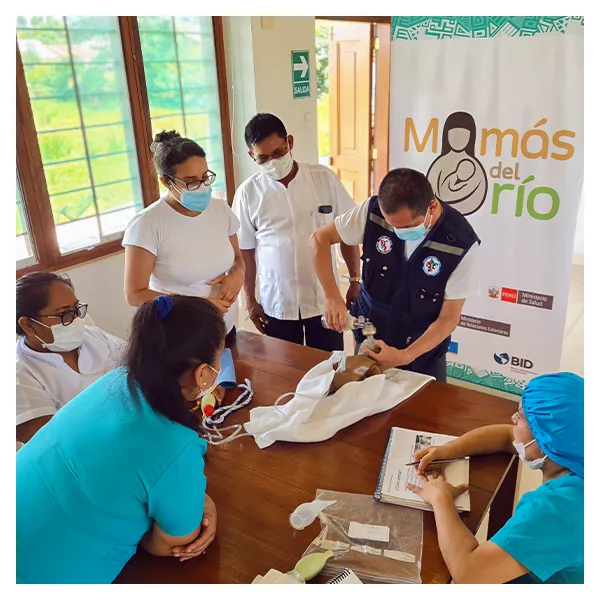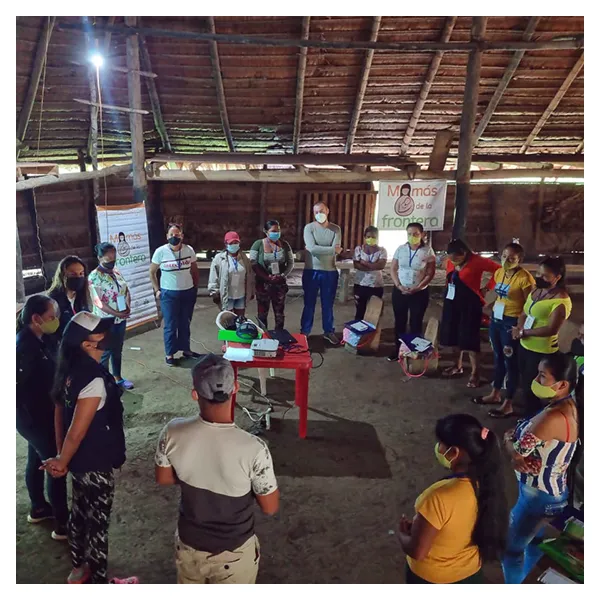
In our country, community health workers (CHWs) are members of the community with specialized training in health issues, serving as essential links between the community and health services. Selected by the community itself, they have a deep knowledge of the local culture and health needs, playing a vital role in reducing gaps and inequalities in access to health in indigenous, rural and remote areas. The Mamas del Río project involves CHWs in 84 communities of Nauta, Parinari and Saquena, focusing on improving health and reducing maternal and child mortality.
These community leaders contribute to disease prevention and health promotion through participatory approaches, and their work ranges from maternal and child care to identifying local and global health issues and providing guidance on available resources and how to access them. Despite their crucial role, especially evident during the Covid-19 pandemic, their work remains voluntary and they are not officially recognized as part of the national health system.

In Amazonian communities, traditional midwives represent the main care option for pregnant women due to their detailed knowledge of cultural and traditional practices of childbirth and neonatal care, offering personalized care appropriate to the local culture. Additionally, access to health facilities is difficult due to the remoteness of the communities to them, the high cost that this implies and the lack of culturally relevant health services. During the Covid-19 pandemic, midwives, in collaboration with CHWs, became an essential source of care for pregnant women and newborns, acting as the first line of defense in their communities against the impact of the virus, providing information and support essential.

They were and are our local partners who contributed to the implementation of the program. Their close collaboration with CHWs and midwives is crucial to improving maternal and neonatal health in communities. These staff include doctors, nurses, midwives and nursing technicians who work in local health facilities and provide access to a broader range of health services for women and children.

This awareness is carried out as part of the efforts to improve maternal-neonatal health in the different communities we reach. It is about raising awareness and promoting the importance of births in health facilities, of medical check-ups for mothers and babies; and essential newborn care practices as crucial factors of community well-being.
It is carried out at three levels: With community leaders, with community residents and heads of families, and with women of childbearing age, to ensure greater acceptance and participation in health initiatives.
Application and Tablet: Technology is a fundamental pillar at Mamás del Río. The CommCare application on tablets used by community agents facilitates information and education management. It serves as a guide for the community agent, allows scheduling visits, recording clinical data and needs of mothers and babies, and planning interventions. Offers educational materials and essential care reminders, improving learning and information retention.
Communication Support: The tablet facilitates more effective communication between CHWs, mothers and their families since it contains digital stories co-created with the community; It also allows the sending of information to those who monitor the program and to the health centers to articulate a comprehensive intervention for the mother and baby.
Mamas del Río applies a unique and effective community approach, where CHWs coordinate their work with midwives and medical personnel, promoting community awareness.
Special training in maternal and child care and digital technology, selected by their communities to foster trust and participation.
Identification of pregnancies and personalized monitoring with the help of technology, with up to 11 visits during pregnancy and postpartum focused on the health of the mother and baby up to one year of age.
Use of technology to plan educational interventions at home, supported by audiovisual material co-created with the communities.
Data collection and continuous feedback from supervisors through technology to improve and adapt services to community needs.
©2024. Made with (❤︎) in Yachayninchik